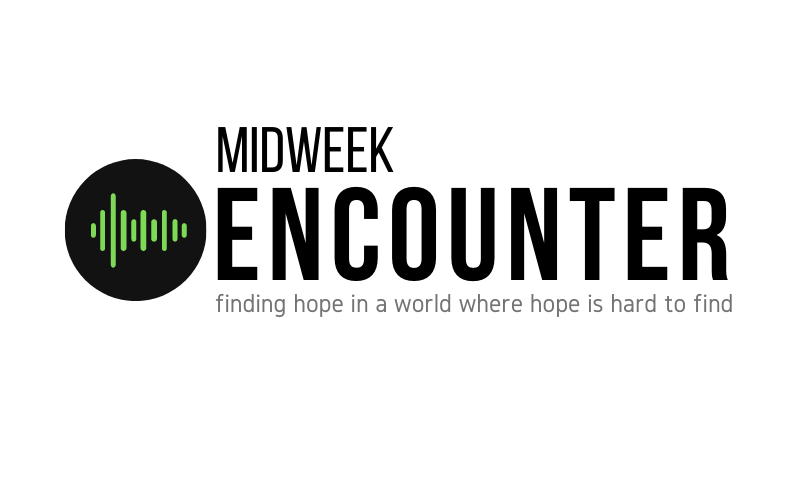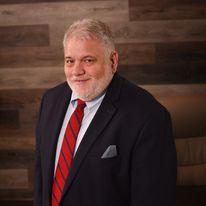Bigger Than My Questions Mark 9: 14 --23
All of us need faith at one time or another. We experience faith when we live in a relationship with God. It takes faith to be a Christ follower.
I want us to think about the kind of faith that it takes to handle the big problems of life. It could be in your business or it could be in your family. It could be at school or on the job. We all face them at some point. We all will face decisions that rip us apart to make. What is the biggest issue you have in your life today? We all have something. I would like you to identify whatever it is that is your greatest concern today and apply this message to it.
Think of the biggest problem you have and then put yourself in the place of this father.
“Faith is not of works, lest anyone should boast, it is the gift of God.”
1. He drew near to Jesus. Attraction
We live in a day of specialist. Doctor/building a house/oil changes
Jesus is an expert in every need we might bring to Him.
22 The spirit often throws him into the fire or into water, trying to kill him. Have mercy on us and help us, if you can.”
2. He listened to Jesus. Attention
23 “What do you mean, ‘If I can’?” Jesus asked. “Anything is possible if a person believes.”
3. He became honest. Admission
24 The father instantly cried out, “I do believe, but help me overcome my unbelief!”
I never have trouble believing the Bible. I believe it from beginning to end. I don’t doubt any stories no matter how fantastic they might be. But I will tell you it is sometimes not very easy to believe for myself.
4. He spoke his belief. Affirmation
24 The father instantly cried out, “I do believe,
My struggles one Monday morning.
The lady in Lexington.
I’m pressing on the upward way, new heights I’m gaining every day.
Still praying as I onward bound, “Lord, plant my feet on higher ground.”
My heart has no desire to stay, Where doubts arise and fears dismay.
Though some may dwell where these abound, my prayer my aim is higher ground.
I want to scale the up-most height and catch a gleam of glory bright.
But still I’ll pray till heaven I’ve found, “Lord, lead me on to higher ground.”
Lord, lift me up and let me stand, By faith, on heaven’s table land.
A higher plane than I have found. Lord plant my feet on higher ground.
5. He gave his son to Christ. Action
He had to know that this boy had the potential to do something embarrassing, yet he brought him to Jesus.
Grandfather
Father and son at the bridge.
There are five steps on the journey of faith. Let me give them to you one more time.
1. He drew near to Jesus. Attraction
2. He listened to Jesus. Attention
3. He became honest. Admission
4. He spoke his belief. Affirmation
5. He gave his son to Christ. Action
Together lets worship the Lord with the singing of a hymn that is very different than most hymns. Most hymns are us singing to God. Notice in this great song that we are singing the words that God would be speaking to us.
How firm a foundation, ye saints of the Lord,
Is laid for your faith in His excellent Word!
What more can He say than to you He hath said,
You, who unto Jesus for refuge have fled?
Fear not, I am with thee, O be not dismayed,
For I am thy God and will still give thee aid;
I’ll strengthen and help thee, and cause thee to stand
Upheld by My righteous, omnipotent hand.
When through the deep waters I call thee to go,
The rivers of woe shall not thee overflow;
For I will be with thee, thy troubles to bless,
And sanctify to thee thy deepest distress.
When through fiery trials thy pathways shall lie,
My grace, all sufficient, shall be thy supply;
The flame shall not hurt thee; I only design
Thy dross to consume, and thy gold to refine.
Even down to old age all My people shall prove
My sovereign, eternal, unchangeable love;
And when hoary hairs shall their temples adorn,
Like lambs they shall still in My bosom be borne.
The soul that on Jesus has leaned for repose,
I will not, I will not desert to its foes;
That soul, though all hell should endeavor to shake,
I’ll never, no never, no never forsake.
Lectionary Texts: Acts 2:1-21 or Numbers 11:24-30; Psalm 104:24-35b; 1 Corinthians 12:3b-13; John 20:19-23 or John 7:37-39
Sermon Text: Acts 2:1-12
The Mission of the Spirit
Sermon Form: Alternate the story between Acts 2 and the local church “Build it” mindset.
[Move 1a:] The early disciples had ideas about the kingdom of God. Throughout the Gospels, the disciples make it clear they think Jesus, the Messiah, will bring about certain things. When Jesus brings the Kingdom, they thought, He would literally restore the throne of King David. The Messiah would come, overthrow the Roman Empire, kick out the Roman governor, remove Herod from his throne, and reestablish the “good old days” when Israel was united, independent, and flourishing.
That mindset wasn’t unique to the disciples. It turns out most of the Jewish people felt the same way. Over time, Jewish folks everywhere came to the point where they just knew the coming of the Messiah meant the restoration of their kingdom. If they could just see David’s throne restored, they’d finally be going somewhere!
[Move 1b:] We preacher-types also love to talk about the kingdom of God. Most of us have spent years going to school, learning how to preach, working with Scripture, leading people, and growing the Church. We get “junk mail” every week inviting us to seminars and conferences that promise the “next best thing” in church growth strategies, worship practices, and leadership techniques.
Many pastors spend their lives trying to “build” the kingdom of God in their churches. If we’re not careful, we find ourselves comparing our church to the church down the street or across the district. We compare statistics in our pastor meetings, curious about where our church measures up to other.
That mindset isn’t unique to just the pastors. Church boards, leaders, and even entire congregations can get caught up in these church-comparison games. We look at the success another church has and think, “wow, if we could just make that happen here, we’d really be going somewhere!”
[Move 2a:] The problem with the disciples’ way of thinking was that they did not recognize the real kingdom of God, even when it was in front of them. They were so focused on their own view of what “kingdom” meant, they almost missed out on it completely.
Jesus lived among them, showing and teaching them about the true kingdom of God for three years. He performed miracles, taught daily, and lived the Kingdom in front of them. He even went to the Cross, and was raised from the dead, fulfilling the prophecies concerning the Messiah. After all this, the disciples still didn’t understand what the Kingdom was all about. They still thought it was about the nation of Israel. Acts 1:6 proves it: “So when they had come together, they asked him, ‘Lord, is this the time when you will restore the kingdom to Israel?’” (NRSV). So focused were they on their own vision of what they thought the Kingdom looked like that they were clueless as to the true nature of the Kingdom. So there they were, huddled together, still tied to their flawed view, wondering what would happen next.
[Move 2b:] In the midst of church growth strategies and looking for the “next best thing,” it doesn’t take long to forget about God. It’s so easy to become focused on our programs, our music, our committees, and our numbers that we miss what God might want to do in our midst. We can easily become so interested in building our own little kingdom that we don’t recognize the incredible, life-changing things God is just waiting to do among us.
This is a dangerous place to be, because we can become convinced that all the church needs to succeed is a new system, a new program, or a new “business” model. Instead of looking to the Lord, we look to consultants, books, and church-growth gurus to give us the answers. God could be doing something awesome in our midst, but we might not see it. We can become so focused on our own little neck of the woods, church, programs, statistical reports, building projects, and evangelism efforts, that we are in danger of missing out on the real kingdom of God. And here we are, huddled together, stuck in our flawed view, wondering what will happen next.
[Move 3: Bringing it together:] Wham! And then the Holy Spirit falls. Everything changes. A group of disciples with a wimpy, inaccurate view of the kingdom of God become the Church through which God changes the world. The Spirit falls, and our “just Jesus and me” mentality of individualistic Christianity melts into an encounter with the God who forms us into the community of faith where language, culture, racial, and gender barriers don’t exist.
The Spirit falls, and as disciples, we see a new, much larger vision of the Kingdom of God that goes way beyond our little kingdom plans. It goes beyond our kingdom of Israel, with its plans, strategies, and consultants. It goes beyond our need to be right in the church and to win petty arguments that have nothing at all to do with God’s Kingdom. The Spirit falls, and Jesus’ disciples are indeed sent to “Judea, Samaria, and to the ends of the earth” to proclaim the good news of the Kingdom.
Has the Spirit fallen on us in this way? On our families? On our church? What would our life together be like if we experienced the presence of God in such a way that it completely transformed our idea of what “kingdom” means? What if we experienced Pentecost . . . today?
2008/05/11



